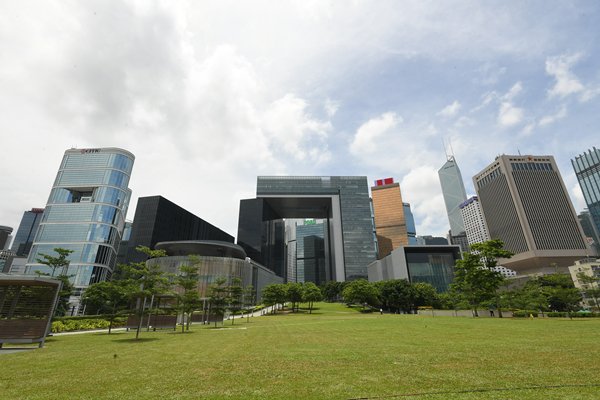$37.8b Deficit Forecast

(To watch the 2020-21 Budget speech with sign language interpretation, click here.)
Financial Secretary Paul Chan today forecast a deficit of $37.8 billion for 2019-20 when he delivered his 2020-21 Budget at the Legislative Council.
He said fiscal reserves are expected to be $1.133 trillion by March 31.
This is the first deficit in 15 years, Mr Chan said, adding he forecasts deficits for the next five years as well.
“Though confident in Hong Kong’s fundamental strengths and long-term prospects, I must prudently assess the impact of the current situation on government revenue in the coming year,” he said.
Given an estimated drop in tax and land revenues along with the launch of countercyclical fiscal measures on a much larger scale and the continued rise in recurrent expenditure, the finance chief said he expects the fiscal deficit for next year to be $139.1 billion, accounting for 4.8% of the GDP.
Although the deficit for next year will hit an all-time high, a close look at its components shows that almost $120 billion of the deficit is related to the cash payout scheme and other one-off relief measures, which will not incur long-term financial commitments.
Mr Chan added that the operating account is projected to record a deficit for five consecutive years, as shown in the Medium Range Forecast.
In the four financial years starting from 2021-22, there will be an annual deficit of about $50 billion in the operating account, and the overall deficit in the consolidated account will range between $7.4 billion and $17 billion.
The significant rise in government expenditure over the years was for enhancing services or increasing investment in areas of the community which were essential for the needs of the public, Mr Chan said.
Government expenditure will enter a consolidation period in the coming years, with a focus on the optimal use of resources to implement committed initiatives to improve public services and social infrastructure.
He added: “As for future increase in spending, we should be more mindful of the Government’s long-term affordability. It should also be commensurate with the increase in revenue.”
Mr Chan emphasised that Hong Kong needs to maintain its economy’s growth and vibrancy and identify new areas of economic growth to increase revenue, promote social development, cope with the challenges of an ageing population, and provide more quality job opportunities.
Hong Kong may also need to consider seeking new revenue sources or revising tax rates, he said, adding that the one-off relief measures may have to be progressively reduced.
US Stocks Rise On Hopes Of Pause In Rate Increases
Wall Street stocks finished solidly higher on Thursday, reflecting better sentiment on the US economy and a consensus vi... Read more
China's Financial Risks 'controllable': Regulators
The head of the National Financial Regulatory Administration on Thursday told a high-profile forum in Shanghai that the ... Read more
Banks Cut Yuan Deposit Rates, Could Boost Consumption
China's biggest banks on Thursday said they have lowered interest rates on yuan deposits, in actions that could ease pre... Read more
Cheese And Wine Put EU, Australia Deal In Peril
Australia on Thursday threatened to walk away from a blockbuster free trade deal with the European Union unless its prod... Read more
US Stocks End Mixed As Tech Shares Are Sold Off
Gains by industrial companies lifted the Dow on Wednesday, while weakness among technology shares pushed the Nasdaq deci... Read more
Amazon 'plans Prime Video Streaming Service With Ads'
Amazon.com is planning to launch an advertising-supported tier of its Prime Video streaming service, the Wall Street Jou... Read more


